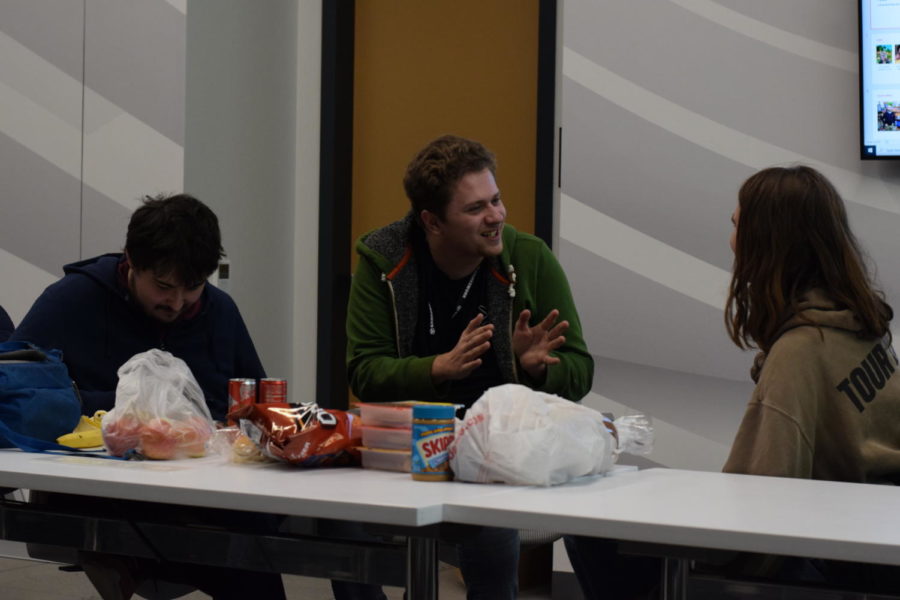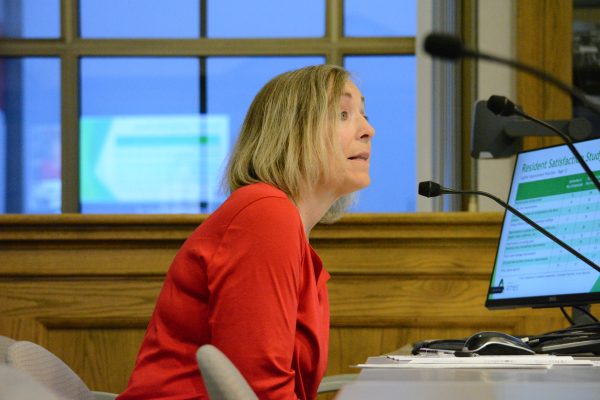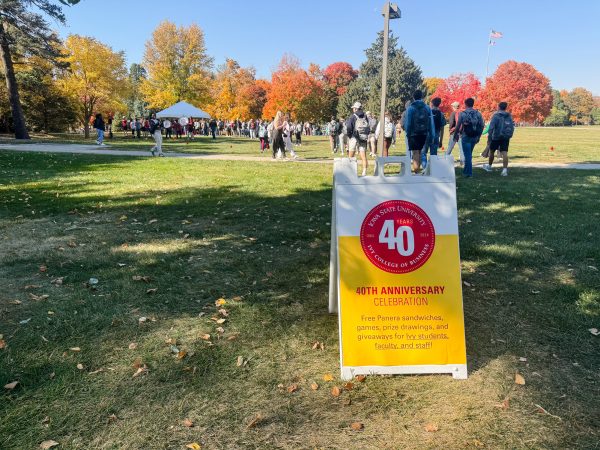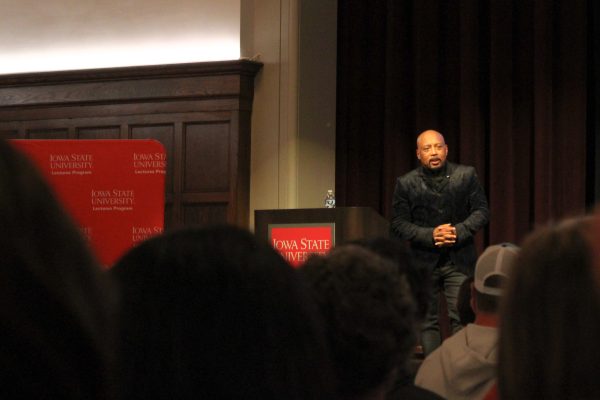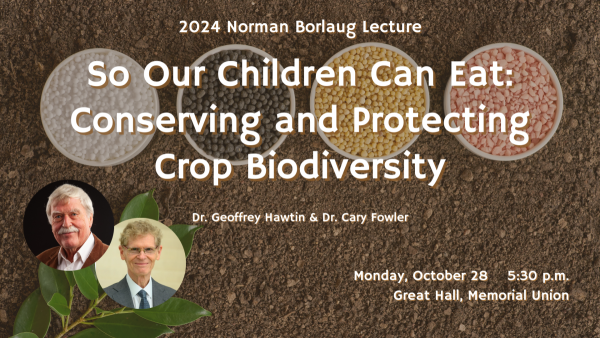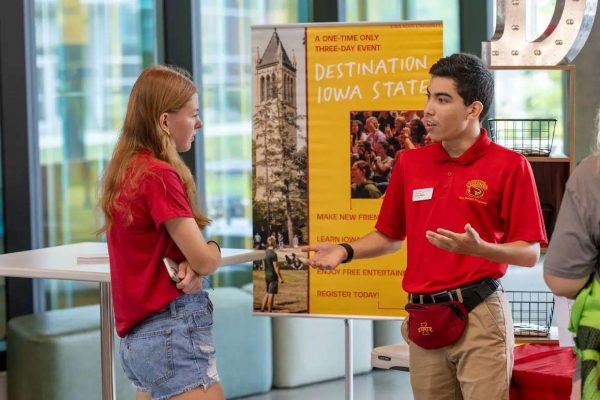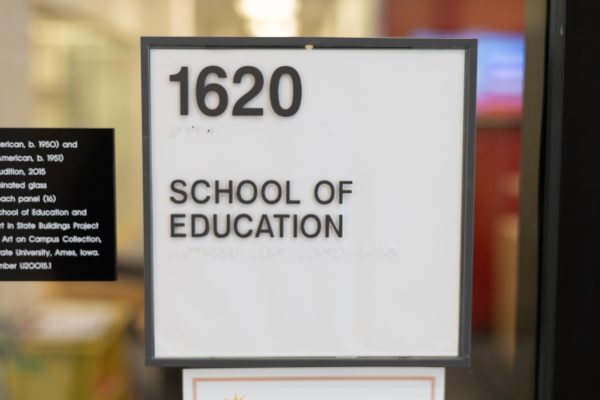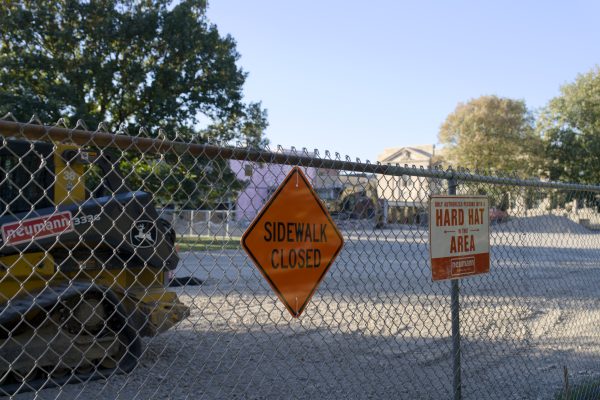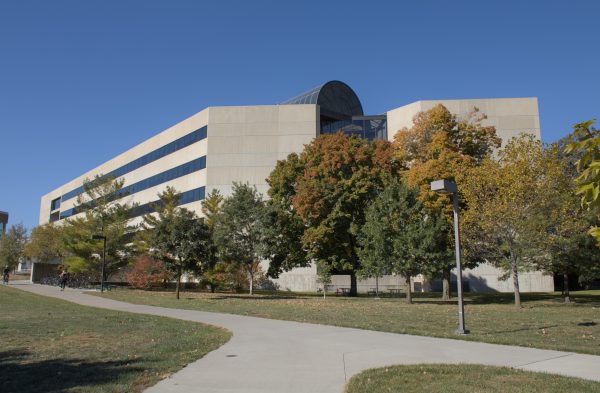Students work to create social impact at Game Jam
A group of students pictured while discussing possible directions to take their game.
Students spent the weekend competing to develop and design game concepts for social impacts as a part of a game jam hosted by Game2Work.
The competition consisted of three prizes: one for the best game overall, one for the most innovative game and one for the game with the best social impact. Groups of contestants were tasked with submitting a five-minute video presentation of their game by Sunday evening.
“There’s like social games that people play for fun, and then there’s serious games which are trying to change the player in some kind of way,” said Michael Brown, assistant professor in the school of education and a co-leader for Game2Work.
Brown said while most people think of games in terms of the “for fun” category, many games also exist as tools for developing new knowledge, social skills and even for gaining a better understanding of science and technology.
“So if you’ve ever played Mario, Mario does a really good job of teaching you how to play it; you learn the physics, but it doesn’t really teach you anything else,” Brown said. “Physics in Mario don’t work in the real world, but really good games will teach you something else.”
Brown said working to ingrain real-world challenges and adversity into games is a great way to help people grow personally. When building games, Brown said having a diverse group with a variety of experiences and expertise can help to produce a well-rounded and impactful game.
The event began shortly after 5:00 p.m. on Friday in the Student Innovation Center launchpad. Sercan Şengün, assistant professor of creative technologies at Illinois State University gave a presentation on his DECKS Framework (decisions versus chance knowledge versus skill), which outlines how different mechanics and aspects of games can work together to create unique experiences.
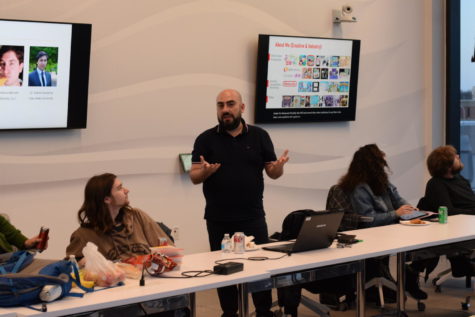
Şengün’s presentation explained how game mechanics that rely on players’ knowledge or skill in the game shapes the experience in different ways, as well as the interplay between players making decisions and taking chances.
After Şengün’s presentation, participants began assembling teams and coming up with ideas for their prospective games. Some students came with teams already formed, while others separated and created their groups once the event was underway.
Samuel Schroeder, a sophomore in software engineering, said Şengün’s presentation gave his group a good understanding of what they wanted to develop. Schroeder said his group’s game stuck most closely with the knowledge and decision aspects of the DECKS Framework.
“Part of the thing in that presentation was that if your game has both of those mechanics that line between those was focusing on teaching and learning and things like that, which kind of fits with what our theme is, is we want to teach people about complex decision making and how that plays out in the real world,” Schroeder said.
Schroeder also said his group’s game was unique because of a hidden logic framework that dictates the players’ success throughout the game. He said players do not necessarily know all the rules of the game to start with, rather they have to learn the impacts of their decisions as they go along.
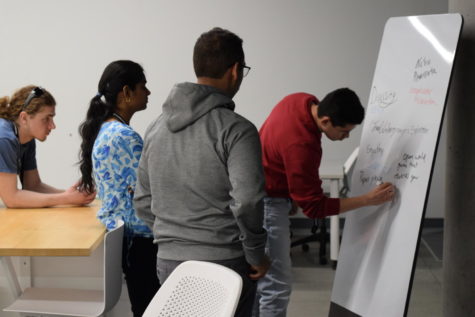
On Saturday, participants shared one-minute presentations on the games they were planning and heard a presentation on how to put together the video presentation for their game. Schroeder said participants also had the opportunity to go through a gallery of games and their cover art to gain inspiration for their projects.
Groups worked virtually to wrap up their video presentations and submitted them to be assessed by Game2Work leadership Sunday. Brown said the different presentations would be rated over the next week and winners would be announced shortly after.
Michael Dorneich, associate professor in industrial and manufacturing systems engineering and co-leader of Game2Work, said the organization comes from a presidential initiative to create more collaborations within different fields using games for research, teaching and other purposes.
“I research human autonomy teaming, some people use gamification in the classroom,” Dorneich said. “We wanted to pull all that together in one place… create some synergies and create collaborations that wouldn’t have happened otherwise.”
Dorneich said the Game Jam this weekend was part of an outreach effort by Game2Work, with the hope that by getting more students excited about games, they may get a stronger base of undergraduates involved with Game2Work.
“We would like Iowa State to become known as a place where there’s a lot of good games and game research,” Dorneich said. “So we’d eventually like to become a center, like a name center, that we build an identity and a brand.”
Your donation will support the student journalists of the Iowa State Daily. Your contribution will allow us to purchase equipment, send our student journalists to conferences and off-set their cost of living so they can continue to do best-in-the-nation work at the Iowa State Daily.


